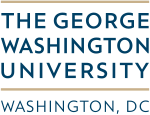Founded in 1821, George Washington University (GWU) stands as a hallmark of higher education in the heart of Washington, D.C. Recognized as one of the largest institutions in the nation's capital, it envelopes a diverse student body within its urban campus, spread across Foggy Bottom and Mount Vernon neighborhoods, with a satellite campus in Virginia. Home to over 26,000 undergraduate and graduate students, GWU boasts a sprawling environment where academic pursuits meet the pulsing political and cultural scenes of the city.
George Washington University is distinguished by its strategic position at the nexus of policy, law, and international affairs. Its Law School is noted for producing some of the nation's leading legal minds, reflecting the school's proximity to the Supreme Court and other federal institutions. Moreover, the Elliott School of International Affairs offers one of the most prestigious programs in foreign relations, drawing on a network of diplomats and policymakers to enhance its curriculum. GWU's School of Media and Public Affairs provides students with unrivaled opportunities to engage with media professionals and politicians, thanks in part to its partnerships with major news outlets and proximity to the political epicenter of the U.S.
The university has a profound reputation for fostering innovation and entrepreneurship, with the GW New Venture Competition-a platform for students to pitch and develop their business ideas-being a marquee event that underscores the university's commitment to supporting future leaders in business. Additionally, GWU is dedicated to community service, a testament to which is the thousands of hours its students contribute annually through various initiatives, exemplifying the university's ethos of social responsibility and civic engagement. In terms of research, it's becoming a hub for cutting-edge medical advancements, with significant work coming from the GW Cancer Center and the School of Medicine & Health Sciences.
While GWU offers robust educational and professional opportunities, it also faces challenges like any major institution. For instance, the cost of attendance at GWU is steep, reflecting the rising trend in tuition fees across the United States, which may limit access for potential students from diverse economic backgrounds. Moreover, the urban setting of the university, while providing many advantages, can also contribute to a higher cost of living that students must navigate. Another point of contention has been the school's struggle with space constraints due to its location, which has sometimes led to limited options for student housing and expansion of campus facilities. These challenges necessitate a concerted effort by the university administration to balance accessibility, affordability, and expansion while maintaining the quality of its programs.



